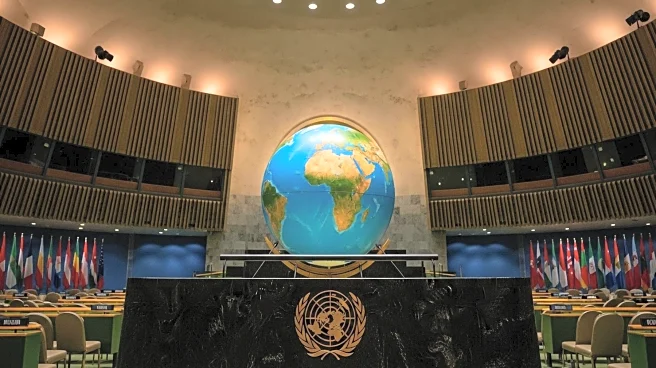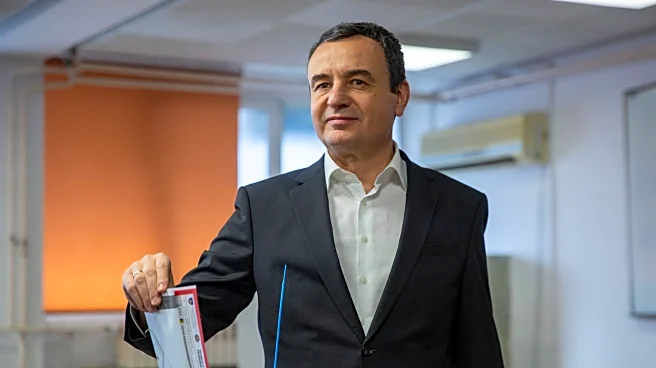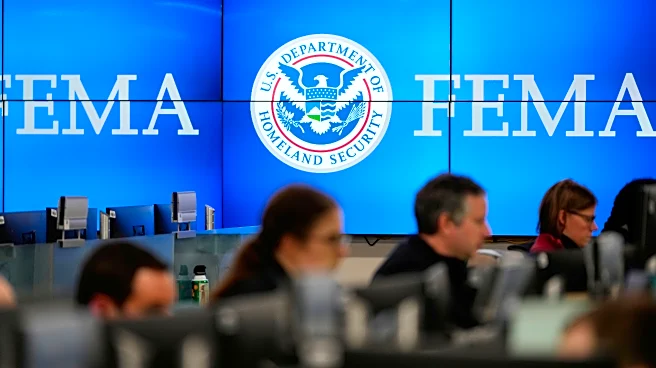What's Happening?
The United Nations General Assembly (UNGA) 2025 has commenced its high-level General Debate, featuring speeches from over 150 world leaders. The debate, held at the UN headquarters in New York, is a platform for addressing global issues such as climate change, artificial intelligence, and international conflicts. Brazilian President Luiz Inacio Lula da Silva and US President Donald Trump are among the first speakers, highlighting tensions between the two nations. The debate follows the theme 'Better Together: 80 years and more for peace, development and human rights,' with Palestine's participation being a focal point amid ongoing discussions about its statehood.
Why It's Important?
The UNGA serves as a critical forum for international diplomacy, allowing leaders to discuss pressing global challenges and propose resolutions. The participation of high-profile leaders like President Trump and President Lula underscores the geopolitical dynamics at play, particularly concerning US-Brazil relations. The assembly's focus on Palestine reflects growing international support for its statehood, despite US opposition. The outcomes of these discussions could influence international policies, diplomatic relations, and efforts to address global issues, impacting countries worldwide.
What's Next?
The UNGA debate will continue through September 27, with sessions resuming on September 29. The discussions may lead to resolutions addressing key issues such as climate change and international conflicts. The US's decision to deny visas to Palestinian representatives could prompt diplomatic tensions and further criticism. The assembly's proceedings will be closely monitored by global stakeholders, potentially influencing future diplomatic strategies and international cooperation.
Beyond the Headlines
The UNGA highlights the complexities of international diplomacy, where geopolitical interests often clash with humanitarian goals. The assembly's focus on Palestine and climate change reflects broader shifts in global priorities, emphasizing the need for collaborative solutions. The event also underscores the challenges faced by international organizations in balancing member states' interests with global objectives, potentially shaping future diplomatic frameworks.











